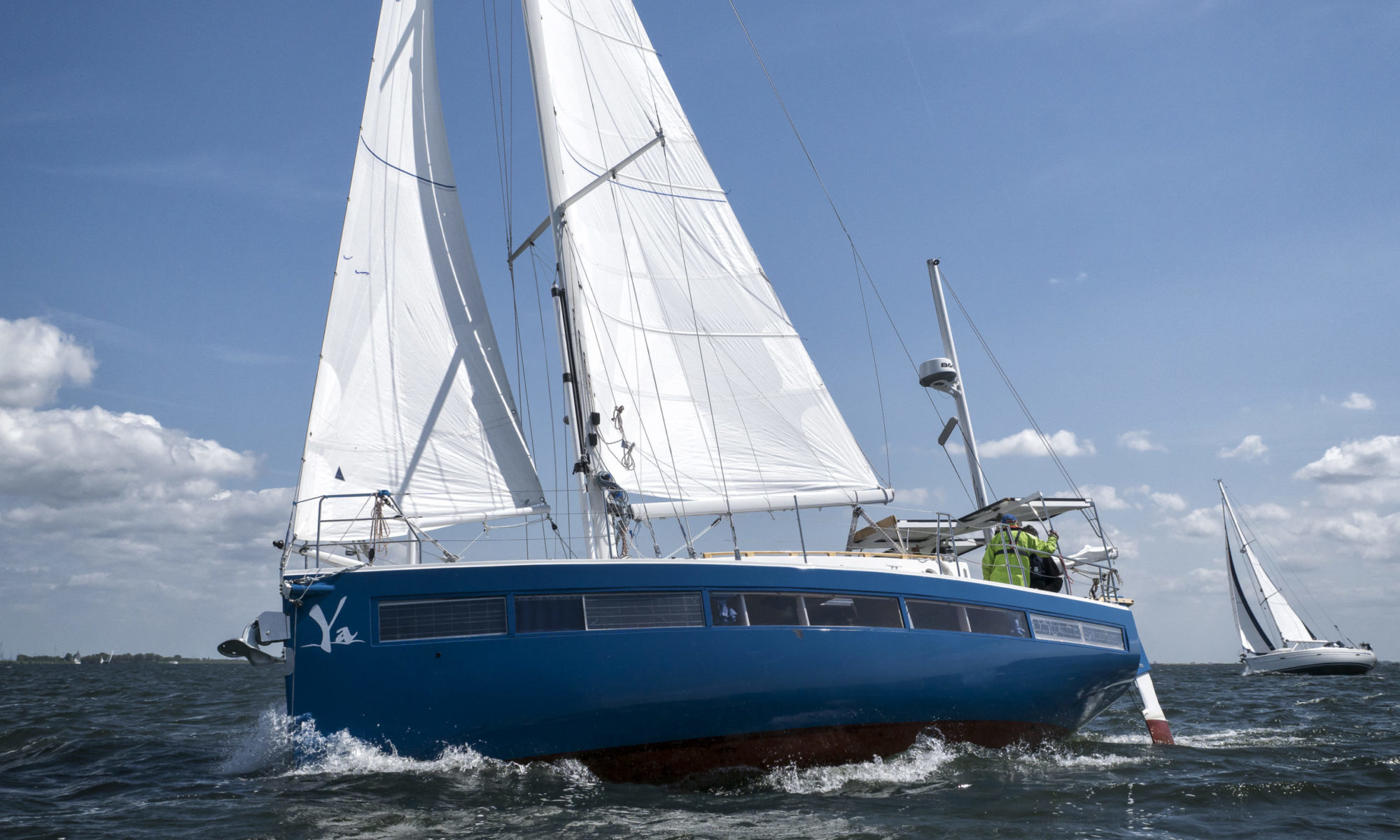The key philosophy of living and sailing Sustainable Yacht ‘Ya’ is to use only what you need. So, if you like to sail, then sail and don’t use the engine. Or, if you need a cup of tea, just heat water for a cup of tea and not a full kettle. That kind of things.
But, we also check for efficiency. How efficient are the electric engines? The propellers? All devices are checked upon this matter. On board these efficiency measures help a lot.
All efficiency measures help us to stay fossil free on board, However, efficiency measures don’t appear to help society. For example, isn’t it remarkable that in 1975 we drove our middle class Volkswagen doing about 6.5 liter per 100 km (1 ltr to 15 km) and 30 years later a middle class Volkswagen is doing the same?
How come? Does energy efficiency not work? Despite all the energy efficiencies on the engine, the tyres, all mechanic parts?

The answer lies in the Jevons Paradox.
The Jevons Paradox
We go back into the 19th century, when England’s industry was growing fast. Thus the coal reserves in England slowly decreased. So, solutions began to be introduced that would allow coal to be used more efficiently. As coal consumption became more efficient, coal reserves were depleted more quickly, not more slowly. How is that possible?
In 1865, British economist William Stanley Jevons wrote a book explaining that greater efficiency leads to lower operating costs. This encourages people to consume more instead of less. Jevons concluded that, in our current economic system, greater efficiency does not lead to lower but to higher consumption.

James Watt’s steam machine (left) entered the industry end of the 18th century. A century later, he first steam turbine saw light and was more than a tenfold more efficient. (source: Wikimedia commons, Sandstein https://commons.wikimedia.org/wiki/User:Sandstein ).
Back to the example of the middle-class car. Around 1970, the middle-class people could afford a Volkswagen Beetle. The car companies were improving their new models, such as the Volkswagen Golf and they became more and more efficient. They could make more profit. Also the wages increased each year. They could lower the price a bit. Not in absolute numbers, but relatively. More people could consume more, so more cars were sold. The efficiency measures encouraged the companies to design bigger and faster models, and with more luxuries. The efficiency measures taken, did not create less, but more consumption of fossil fuels. Thus, the expected environmental ‘profit’ has turned into an environmental loss.

Use only what you need
Conclusion is, if we improve the efficiency in a market, the economy and financial mechanism dictates. If we choose for ourselves, we dictate.
The best answer is to consider for yourself how much you need. Do you need that bigger model? That big house? That lot of water in the kettle? That much engine hours when you originally wanted to sail?
Or are your real values to spend time with your family, no matter in what sort of car?
The market shows, that most people are driven by all the impulses one continuously gets through advertising on your phone or your laptop.
You can choose to reduce these impulses, by using Facebook or Instagram less, use Signal instead of Whatsapp, and use DuckDuckGo instead of Google. OK, Mr. Zuckerberg and the other multi billionaires will not be happy, but they don’t have a money problem in the first place. But you get a fair chance to really use what you need.

